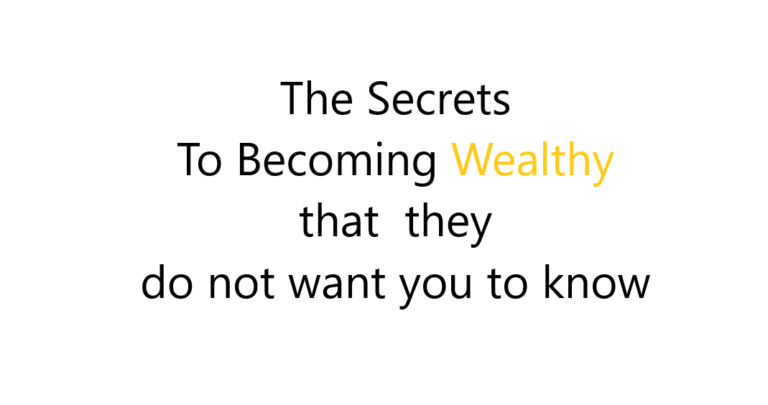The Stoic’s Guide to Financial Freedom: How to Achieve Financial Stability and Peace of Mind
The Stoic’s Guide to Financial Freedom: How to Achieve Financial Stability and Peace of Mind. Financial freedom is one of the most sought-after goals in life. It offers the possibility of living without financial worries, pursuing your passions, and having more time and energy for the things that matter most to you.

The Stoic’s Guide to Financial Freedom: How to Achieve Financial Stability and Peace of Mind
But what does it really mean to be financially free? And how can you achieve it?
One philosophy that can help you on your journey to financial freedom is Stoicism. Stoicism is an ancient Greek philosophy that teaches us how to live a good and virtuous life, even in the face of adversity.
At its core, Stoicism is about focusing on what you can control and letting go of what you can’t. This can be a powerful approach to financial freedom, as it can help you to stay calm and focused in the face of market volatility, unexpected expenses, and other challenges.
In this blog post, we will explore how to apply the principles of Stoicism to your financial life. We will discuss how to set realistic financial goals, develop healthy spending habits, and invest wisely. We will also learn how to deal with financial setbacks and stay motivated on your journey to financial freedom.
What is Stoicism and how can it help you achieve financial freedom?
Stoicism is an ancient Greek philosophy that teaches us how to live a good and virtuous life, even in the face of adversity. It is based on the belief that we can control our own thoughts and emotions, but not external events.
Stoicism can help you achieve financial freedom in a number of ways. First, it can help you to develop a more positive and optimistic outlook on money. Stoics believe that money is not the most important thing in life, and that it should not be a source of stress or anxiety.
Second, Stoicism can help you to make better financial decisions. Stoics are taught to think rationally and to weigh the pros and cons of different options before making a decision. This can help you to avoid making impulsive purchases and to invest your money wisely.
Finally, Stoicism can help you to deal with financial setbacks more effectively. Stoics believe that everything happens for a reason, and that we should not let negative events ruin our lives. When you experience a financial setback, Stoicism can help you to remain calm and focused, and to look for ways to learn from your mistakes and move on.
Setting realistic financial goals
The first step to achieving financial freedom is to set realistic financial goals. What do you want to achieve with your money? Do you want to retire early? Buy a house? Start your own business? Once you know what you want to achieve, you can start to develop a plan to get there.
When setting financial goals, it is important to be realistic. Don’t set goals that are too ambitious or too difficult to achieve. If your goals are too unrealistic, you are more likely to give up.
Instead, focus on setting small, achievable goals that you can build on over time. For example, if your goal is to retire early, start by saving $100 per month. Once you are comfortably saving $100 per month, you can increase your savings rate to $200 per month, and so on.
Developing healthy spending habits
One of the most important things you can do to achieve financial freedom is to develop healthy spending habits. This means spending your money on the things that are important to you and avoiding unnecessary expenses.
There are a number of ways to develop healthy spending habits. One way is to create a budget and track your spending. This will help you to see where your money is going and to identify areas where you can cut back.
Another way to develop healthy spending habits is to avoid impulse purchases. When you see something you want, take some time to think about whether you really need it and whether you can afford it. If you don’t need it, don’t buy it.
Finally, it is important to surround yourself with positive influences. If your friends are always spending money on things they don’t need, you are more likely to do the same. Instead, surround yourself with people who have healthy spending habits and who can support you on your journey to financial freedom.
Investing wisely
Investing is one of the best ways to grow your wealth over time. However, it is important to invest wisely. Before you invest any money, do your research and understand the risks involved.
There are a number of different investment options available, such as stocks, bonds, and mutual funds. It is important to choose investments that are appropriate for your risk tolerance and investment goals.
If you are new to investing, it may be a good idea to consult with a financial advisor. A financial advisor can help you to develop an investment plan and to choose investments that are right for you.
Dealing with financial setbacks
Everyone experiences financial setbacks at some point in their lives. Whether it is a job loss, an unexpected expense, or a medical bill, financial setbacks can be challenging. However, it is important to remember that financial setbacks are temporary. With time and effort, you can overcome any financial setback and get back on track to achieving your financial goals.
When you experience a financial setback, the first thing you should do is to stay calm and focused. Don’t panic and make rash decisions. Instead, take some time to assess the situation and develop a plan to move forward.
If you are struggling to make ends meet, there are a number of resources available to help you. You can contact your local government or non-profit organizations for assistance. You may also be able to negotiate with your creditors to reduce your monthly payments.
The most important thing is to remember that you are not alone. Millions of people experience financial setbacks every year. With time and effort, you can overcome any financial setback and achieve your financial goals.
Conclusion
Achieving financial freedom takes time, effort, and discipline. However, it is a goal that is within reach for anyone who is willing to put in the work.
By following the principles of Stoicism and developing healthy financial habits, you can increase your chances of achieving financial freedom.
Remember, financial freedom is not about having a lot of money. It is about having enough money to live the life you want to live, without financial worries or stress.
You May Like: Why the U.S. Won’t Pay Down Its Debt: 5 Reasons
What are your thoughts on the Stoic’s guide to financial freedom? Do you have any tips or advice for others who are on their journey to financial freedom?
If you enjoyed this blog post, please share it.



